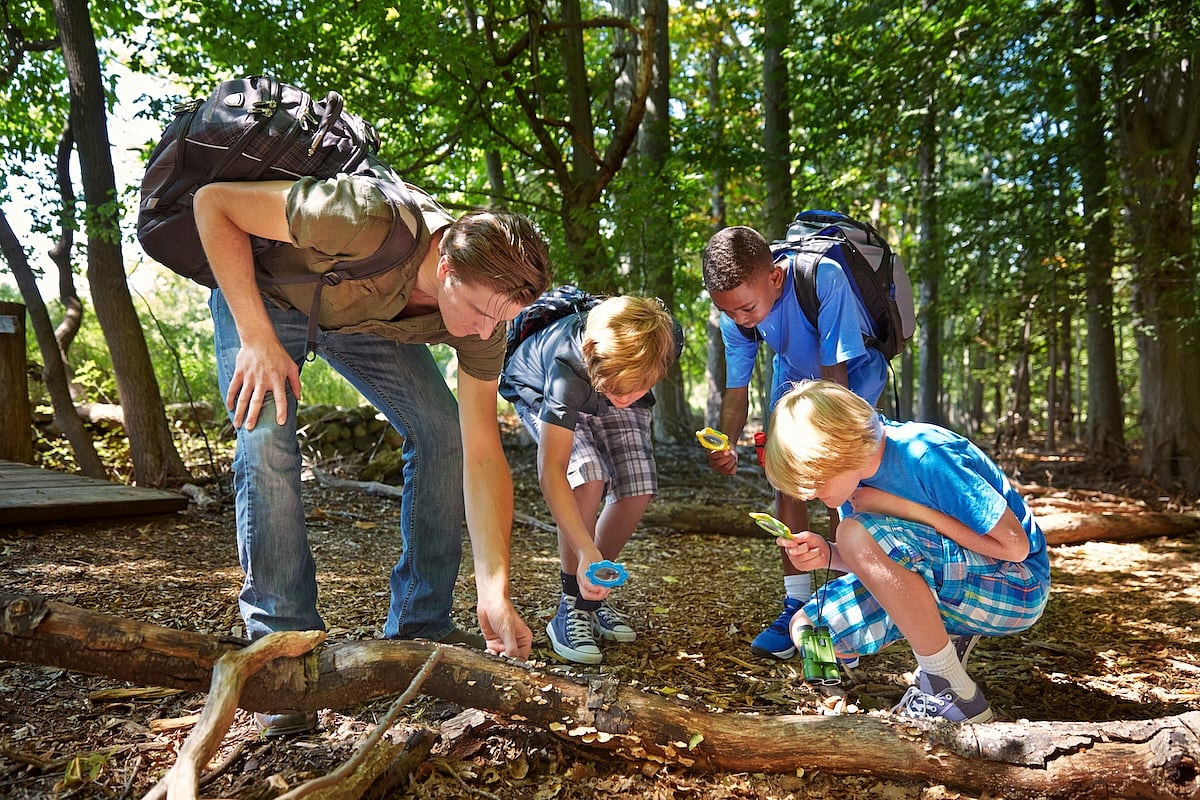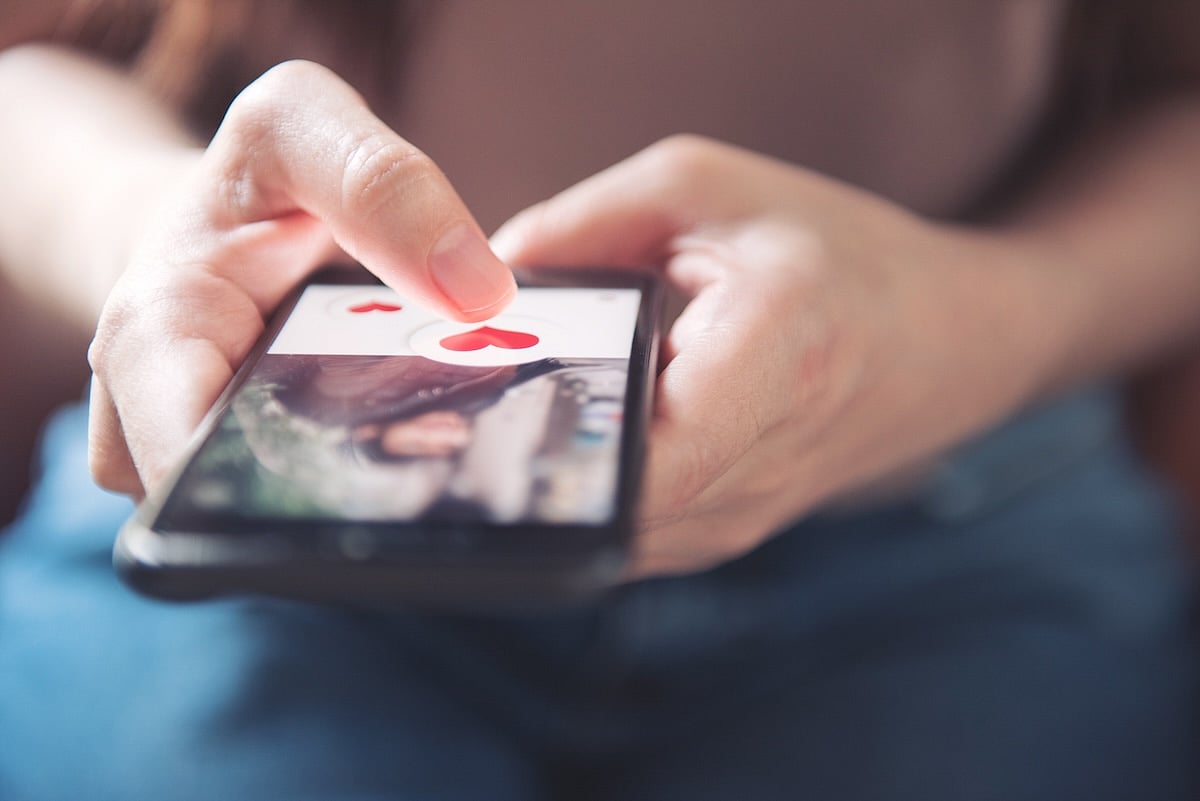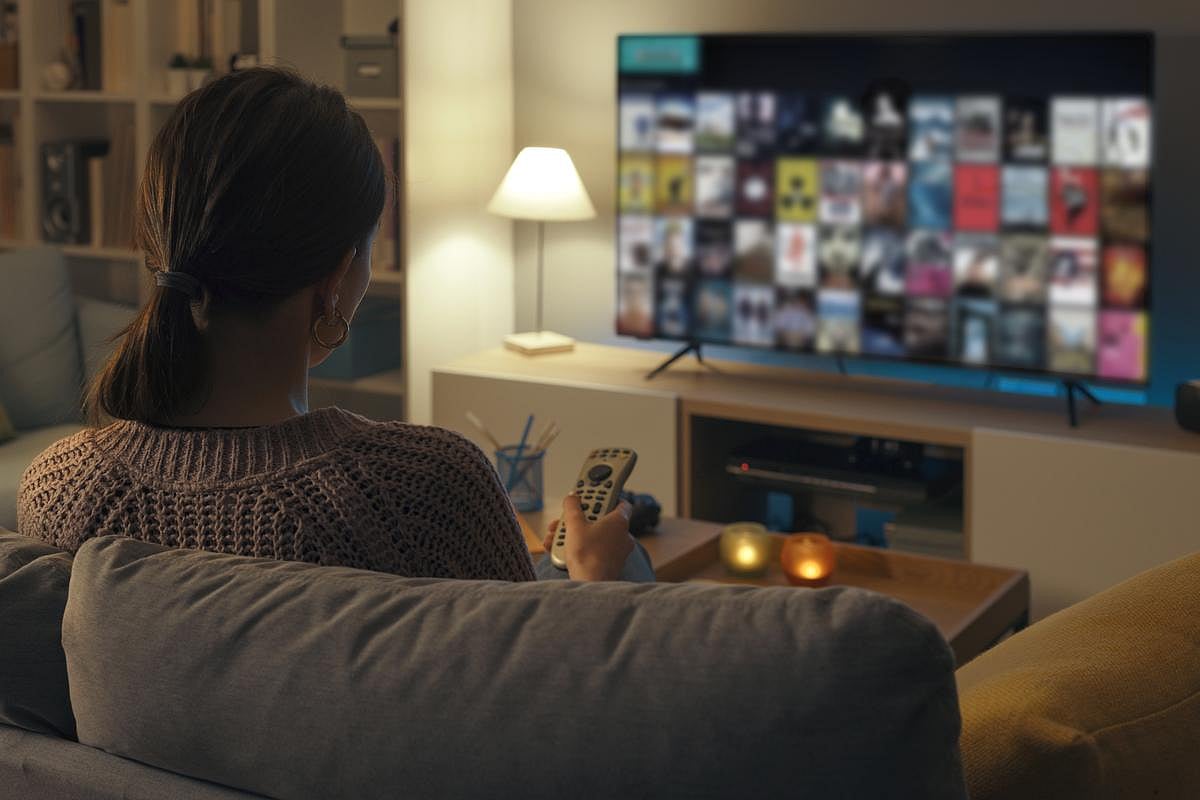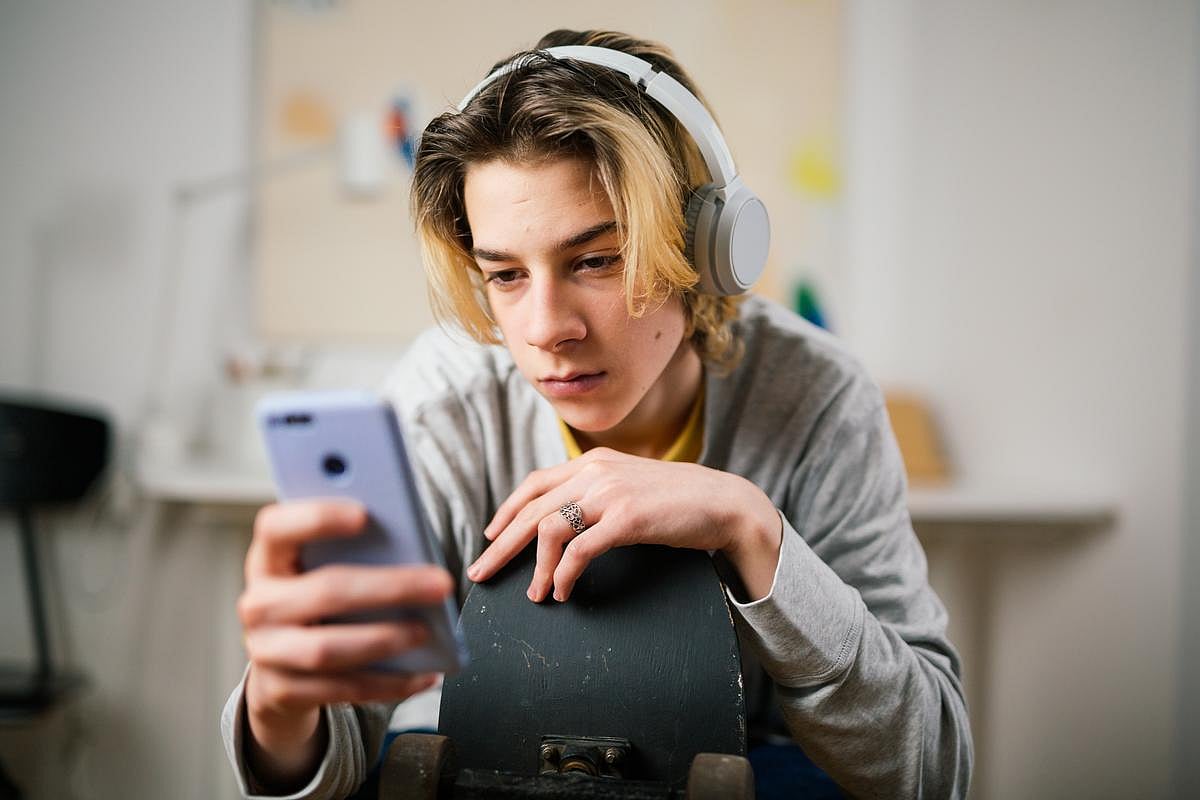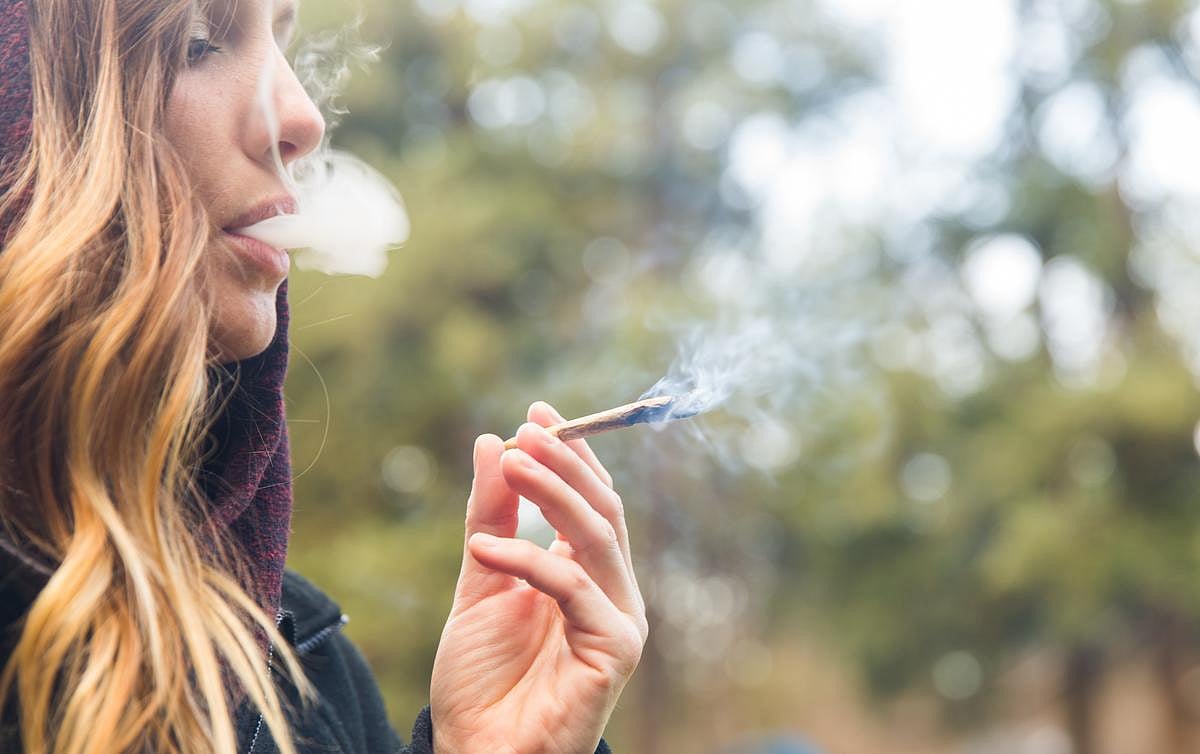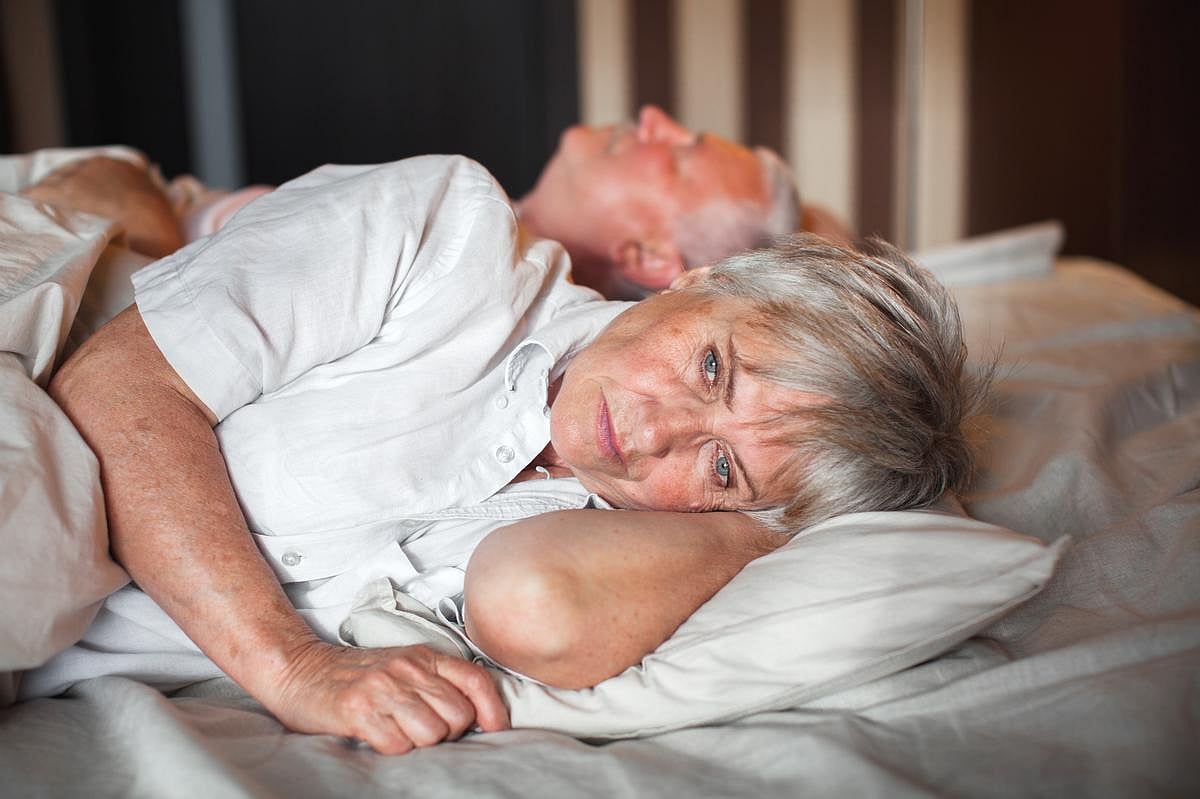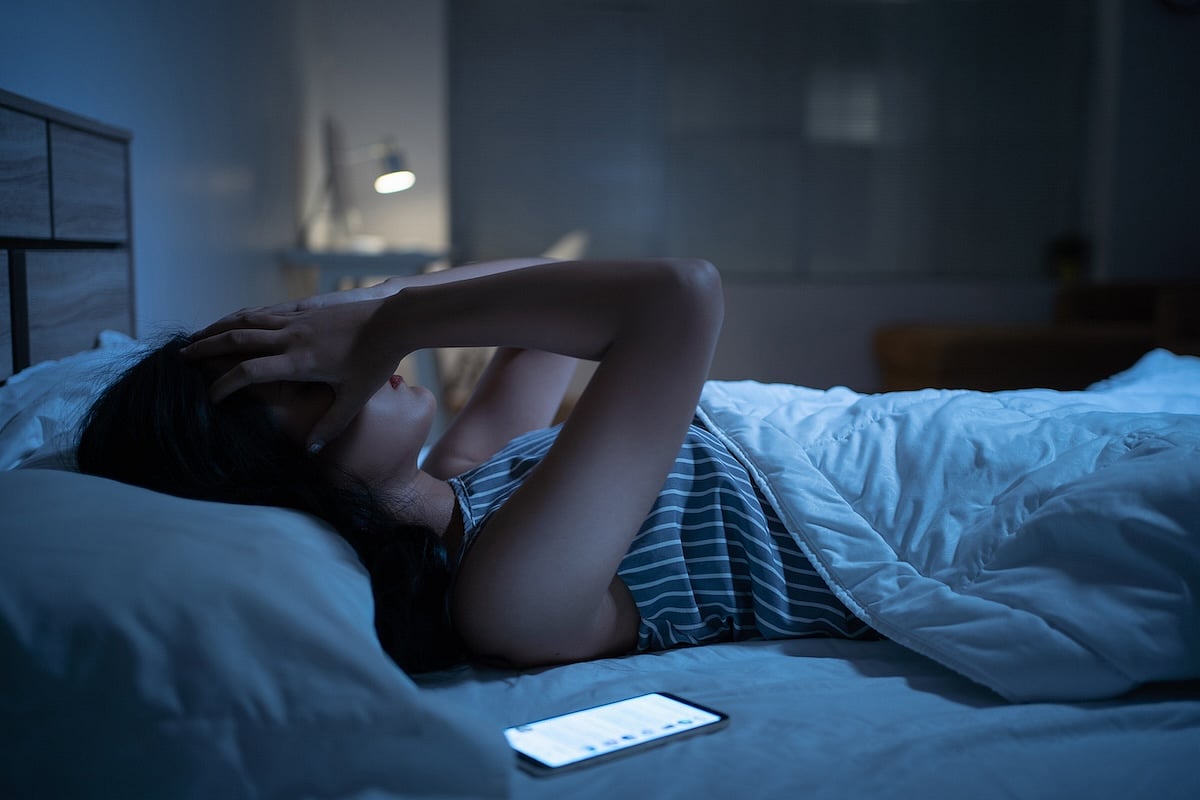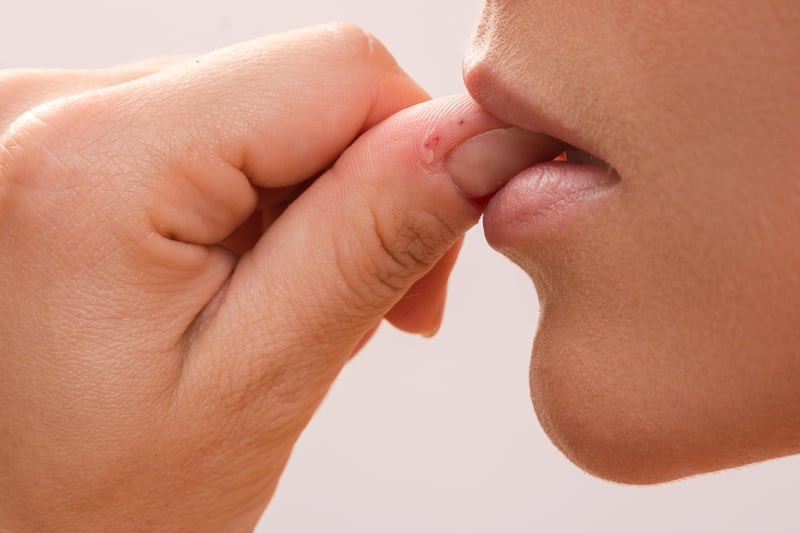Manténgase sano!
234 Resultados de su búsqueda "Behavior".
Resultados de noticias de salud - 234
A dose of green may be just what school kids with anxiety, depression and other mental health issues need, new research shows.
Canadian investigators found that a school program that let 10- to 12-year-olds spend a little time each week in nature paid dividends in improving kids' mental well-being.
"Nature-based programs may offer targeted benefits for children with higher levels of...
- Ernie Mundell HealthDay Reporter
- |
- November 18, 2024
- |
- Página completa
College students who use dating apps are more likely to engage in risky sex, endangering their health, a new study shows.
Those using a dating app were 2.2 times to have had more than one sexual partner over the past year, and 1.4 times more likely to have had sex while under the influence of alcohol, researchers found.
Dating app users were also 1.8 times more likely to have underg...
- Dennis Thompson HealthDay Reporter
- |
- November 15, 2024
- |
- Página completa
Are people with autism less able to "read" the nefarious intent of criminals, leaving them more vulnerable to scams or coercion into criminal activity?
It's been a common notion among trial lawyers, the Australian researchers behind a new report say, but it's not grounded in any real evidence.
"This perspective may not hold up under scrutiny and we found that, in general, autistic a...
- |
- November 1, 2024
- |
- Página completa
The COVID-19 pandemic appears to have created a nation of homebodies in the United States, a new study finds.
People are spending nearly an hour less each day doing activities outside the home, researchers reported Oct. 31 in the
Half of young Americans between the ages of 12 and 17 spend at least four hours each day on their smartphones, computers or televisions, a new survey shows.
"As technology has become more integrated into teenagers’ lives, the time spent in front of screens has continued to rise in the United States," noted a team of researchers from the U.S. Centers for Disease Control and Preventio...
- Ernie Mundell HealthDay Reporter
- |
- October 30, 2024
- |
- Página completa
Smoking marijuana during pregnancy may quell your morning sickness, but it could also harm your child’s development, a new study warns.
Cannabis exposure in the womb is associated in early childhood with poorer thinking skills, researchers reported Oct. 28 in the journal JAMA Pediatrics.
These kids also have behavioral problems like impulse control, poor attention an...
- Dennis Thompson HealthDay Reporter
- |
- October 28, 2024
- |
- Página completa
Baby Boom seniors are divorcing at rates triple that of a few decades ago, a new study has found.
“Gray divorce” among folks 65 and older increased to 15% in 2022 from 5% in 1990, according to research from the National Center for Family...
- Dennis Thompson HealthDay Reporter
- |
- October 22, 2024
- |
- Página completa
Attention all 'know-it-alls."
Folks who are sure they're right often believe they've got enough information to make up their minds, even if in reality they only have part of the picture, a new study finds.
It’s a concept called the “illusion of information adequacy,” and it helps explain how people can have such strong and cemented opinions even though the...
- Dennis Thompson HealthDay Reporter
- |
- October 10, 2024
- |
- Página completa
A Wisconsin program that sends suspects in minor drug-related crimes to treatment instead of jail is paying off, a new study shows.
Researchers who evaluated the Madison Area Recovery Initiative (MARI) found that non-violent offenders who were given a clinical assessment and six months of
Many young adults are experimenting with “bed rotting” and other sleep trends that have gone viral on TikTok and other social media platforms, a new poll shows.
Sleep experts say these trends likely won’t do any immediate harm, but they add that people would do b...
- Dennis Thompson HealthDay Reporter
- |
- August 23, 2024
- |
- Página completa
An interactive text-message support program can help teenagers quit vaping, a groundbreaking new clinical trial finds.
Teens who subscribed to the anonymous program, called This Is Quitting, were 35% more likely to report not vaping nicotine by the end of a seven-month study, researchers reported Aug. 7 in the
If you and your partner fall silent when vexing money issues arise, new research suggests you are not alone.
A team from Cornell University found that the more stressed people were about their finances, the less likely they were to discuss those concerns with their romantic partners.
The findings were published recently in the
People largely date and marry people in their own "league,"as far as beauty is concerned, a new review finds.
Men and women are fairly accurate at rating their own physical attractiveness, and they tend to choose mates who have similar views of their own beauty, researchers report.
For example, fellows who rated themselves as attractive tended to date ladies with similar self-rating...
- Dennis Thompson HealthDay Reporter
- |
- July 1, 2024
- |
- Página completa
Role models are important in health as well as in life, but such inspiration is more likely to come from your mom than a celebrity like Dwayne "The Rock"Johnson, a new study says.
People had greater motivation to reach their health goals if they looked to a person in their everyday life"a friend, relative or ...
- Dennis Thompson HealthDay Reporter
- |
- June 27, 2024
- |
- Página completa
Adults' phobias can be correlated with changes in the structure of their brains, a new study finds.
What's more, the neurological differences seen in adults with phobias are more extensive than those observed in people with other forms of anxiety.
Phobia is the most common anxiet...
- Dennis Thompson HealthDay Reporter
- |
- June 18, 2024
- |
- Página completa
Winston Churchill once said, "Success consists of going from failure to failure without loss of enthusiasm."
It's one of countless platitudes claiming that failure leads to success.
But there's strong evidence that such a notion is wrongheaded and can lead to terrible real-world consequences, researchers said in a new report.
In fact, many people do not learn from their failur...
- Dennis Thompson HealthDay Reporter
- |
- June 11, 2024
- |
- Página completa
Only about half of people with a sexually transmitted disease would tell a new partner about their infection before having sex, a new review finds.
Fear prevents many people from revealing their STD to a new sex partner, according to the combined results of 32 previous studies.
- Dennis Thompson HealthDay Reporter
- |
- June 7, 2024
- |
- Página completa
"Ugh, I'm so busy these days I can barely think straight. It's so crazy."
No doubt some friend or coworker (maybe even yourself) has moaned about how stressed and overworked they are.
Sometimes its fully justified, but in many cases folks see it as "stress bragging...
- Ernie Mundell HealthDay Reporter
- |
- May 27, 2024
- |
- Página completa
Materialism could be fueling America's epidemic of loneliness and isolation, a new study claims.
People who spend their money on experiences tend to have stronger feelings of social connection with others than those who purchase belongings, a series of psychological experiments has revealed.
For example, people tend to feel more connection and kinship with people who have shared an ...
- Dennis Thompson HealthDay Reporter
- |
- May 23, 2024
- |
- Página completa
The smell of food is appetizing when you're hungry. At the same time, it can be a turnoff if you're full.
That's due to the interaction between two different parts of the brain involving sense of smell and behavior motivation, a new study finds.
And it could be why some people can't easily stop eating wh...
- Dennis Thompson HealthDay Reporter
- |
- May 17, 2024
- |
- Página completa
People who gamble on sports are more likely to be binge drinkers as well, a new report finds.
Both women and men who bet on sports were at least twice as likely to binge drink compared to non-gamblers, results showed. Further, the odds of binge drinking increased with the frequency of gambling.
"With past research showing that sports gamblers are more likely to report symptoms of al...
- Dennis Thompson HealthDay Reporter
- |
- April 3, 2024
- |
- Página completa
Cutting back on late-night alcohol sales might help curb crime in violence-ridden neighborhoods, a new report claims.
Murders dropped by half (51%) within a month after one Baltimore neighborhood limited alcohol hours of sale for bars and taverns, researchers report April 1 in the journal
- Dennis Thompson HealthDay Reporter
- |
- April 3, 2024
- |
- Página completa
Ahead of a total solar eclipse arriving April 8, new research finds there was a temporary rise in U.S. traffic accidents around the time of a solar eclipse back in 2017.
The area in the United States covered by the total eclipse seven years ago was relatively small (about 70 miles wide), but it was still tied to a 31% national rise in fatal traffic accidents.
"In absolute term...
- Ernie Mundell HealthDay Reporter
- |
- March 25, 2024
- |
- Página completa
Grumbling and grousing to others isn't an effective way of reducing rage, a new review shows.
Folks who vent about a source of anger might feel better in the moment, but that won't diminish their ire, researchers found.
Instead, stress-reducing techniques like deep breathing, mindfulness, meditation and
During the past half-century, the United States' annual number of school shootings has increased more than twelvefold, a new study finds.
What's more, children are now four times more likely to be a school shooting victim, and the death rate from school shootings has risen more than sixfold.
"Firearm violence is a public health crisis, and it needs to be addressed,"said lead researc...
- Dennis Thompson HealthDay Reporter
- |
- March 8, 2024
- |
- Página completa
The "selfie"culture on social media appears to be intensifying people's desires to undergo cosmetic procedures, a new study suggests.
Time spent on Snapchat or Instagram seems to heighten a person's interest in such procedures, researchers found. This was particularly true if folks used filters and photo-editing applications to alter the personal pictures they posted.
"While there a...
- Dennis Thompson HealthDay Reporter
- |
- March 7, 2024
- |
- Página completa
There's more good news around the diabetes and weight-loss drug Ozempic: It might help ease fatty liver disease in people living with HIV, new research shows.
Six months of weekly injections of Ozempic (semaglutide) resulted in an average 31% reduction of a harmful buildup of fat in the liver of HIV-positive patients, the
Being an angry hard-charger won't win you any points in the workplace, new research has found.
Prior evidence had suggested that workers who express anger are judged to be competent and hold a higher status, the researchers noted.
But the new studies refute those earlier findings, according to researchers from Hebrew University of Jerusalem and Princeton University.
"We found ...
- Dennis Thompson HealthDay Reporter
- |
- February 20, 2024
- |
- Página completa
A disturbing number of people sick with an infectious disease conceal their illness to avoid missing work, travel or social events, new research reveals.
About three in four people (75%) had either hidden an infectious illness from others at least once or might do so in the future.
These folks reported boarding planes, going on dates and engaging in other social activities while sic...
- Dennis Thompson HealthDay Reporter
- |
- January 31, 2024
- |
- Página completa
Saying "no"to a holiday invite might feel unforgivably rude, but people often overestimate the social consequences of turning down an invitation, psychologists report.
More than three out of four people (77%) say they've accepted an invitation to an activity they didn't want to attend because they were concerned about the consequences of declining.
To see why people feel that way --...
- Dennis Thompson HealthDay Reporter
- |
- December 12, 2023
- |
- Página completa
Have a hard time looking others in the eye?
You aren't alone, Canadian researchers report.
Eye-to-eye contact rarely occurs when two people are talking, they found.
"We discovered that participants spent only about 12% of conversation time in interactive looking, meaning that they gazed at each other's faces simultaneously for just 12% of the interaction duration,"said lead re...
- Dennis Thompson HealthDay Reporter
- |
- November 17, 2023
- |
- Página completa
For a needed mood boost, skip social media and strike up an in-person conversation with someone instead.
Face-to-face socializing boosts mood more than screen time, a new study finds.
People often expect that will be the case, but they don't always follow that instinct, according to the researchers.
"These findings suggest that people may use their smartphones because th...
- Cara Murez HealthDay Reporter
- |
- September 14, 2023
- |
- Página completa
Staying up late comes naturally to some folks, whether they're working or relaxing deep into the night.
But being a night owl might come at a cost to one's health.
People who are night owls have a higher risk than early birds of becoming diabetic, a new study has found.
"We found that night owls were at 72% increased risk of developing diabetes when we compare them to early bi...
- Dennis Thompson HealthDay Reporter
- |
- September 12, 2023
- |
- Página completa
There's an adage that in romantic relationships, opposites attract. Now, a large, new study confirms that just like many old sayings, it's wrong.
In an analysis of about 200 studies involving millions of couples, researchers came to the conclusion that there is little behind the claim that opposites attract. If anything, the one about birds of feather flocking together is much closer to t...
- Amy Norton HealthDay Reporter
- |
- September 8, 2023
- |
- Página completa
Phthalates are commonly used in plastics, and researchers have now tied them to developmental issues in toddler boys who were exposed to the chemical in the womb.
The new study links the chemicals to emotional and behavioral development issues in 2-year-old boys ...
- Cara Murez HealthDay Reporter
- |
- September 4, 2023
- |
- Página completa
It can be hard for new college students, or those returning after summer break, to be away from home.
Homesickness is a normal reaction. About 30% of all students and 70% of first-year students experience it. Though it can happen at any time, it's most common in the first few months away.
If your child is acting out and you're looking for solutions, researchers at the University of Georgia's Youth Development Institute suggest better sleep might be the answer.
Getting more hours of slumber could reduce impulsive behavior in kids, their new study showed.
"Stressful environments are shown to make adolescents seek immediate rewards rather than delayed rewards, but there...
- Cara Murez HealthDay Reporter
- |
- September 1, 2023
- |
- Página completa
Many a person has blamed "beer goggles" following a regrettable one-night stand, but a new study suggests that there's no such thing.
Rather, alcohol acts more like "liquid courage," according to findings published in the Journal of Studies on Alcohol and Drugs -- you become more likely to approach ...
- Dennis Thompson HealthDay Reporter
- |
- August 30, 2023
- |
- Página completa
Millions of Americans who experience major depression will suffer a relapse, but a new study suggests that learning to focus on the positive, rather than the negatives in everyday life, might help reduce those odds.
"What we started to realize is it's not just about how people with depression process negative information but there's something interesting about how they process positi...
- Cara Murez HealthDay Reporter
- |
- August 23, 2023
- |
- Página completa
Misinformation about health and medicine is rampant in the United States, with far too many Americans being presented false claims and left wondering what to believe, a new survey reports.
At least 4 in 10 people say they've heard 10 specific false claims about COVID-19, reproductive health and gun violence,
The idea of "doing your own research"didn't begin with the pandemic, but new research suggests that those who follow that ideology have been more likely to believe COVID misinformation.
"We had heard the phrase a lot before,"prior to the pandemic, said researcher Sedona Chinn, a professor of life sciences communicat...
- Cara Murez HealthDay Reporter
- |
- August 17, 2023
- |
- Página completa
A single hardwired brain circuit might be responsible for male sexual drive, a new mouse study reports.
Researchers have singled out in lab mice a brain region that controls sexual interest, libido, mating behavior and pleasure, said senior researcher Dr. Nirao Shah, a professor of psychiatry and neurobiology at Stanfo...
- Dennis Thompson HealthDay Reporter
- |
- August 11, 2023
- |
- Página completa
Workers may sense it intuitively but their mouse clicks prove it: Friday afternoon is the least productive time of the work week.
It's also when workers make the most typos.
A Texas A&M University team studied this using the computer usage metrics of 789 in-office employees at a large energy company over two years.
"Most studies of worker productivity use employee self-reports...
- Cara Murez HealthDay Reporter
- |
- August 4, 2023
- |
- Página completa
When studying which personality types were more likely to resist getting vaccines, researchers got a surprise.
It was the extroverts who were more vaccine resistant. Compared to other personality styles, extroverts were 18% more likely to refuse the COVID-19 vaccine, the new study finds.
"We expected that people who were especially high in extroversion would be more likely to get ...
- Cara Murez HealthDay Reporter
- |
- August 4, 2023
- |
- Página completa
Being exposed to lead while in the womb or during early childhood may increase a person's chance of engaging in criminal behavior as an adult, a new review claims.
To arrive at this conclusion, the review authors evaluated 17 previous studies that used varying methods to test for lead exposure, including blood, bones and teeth. They also addressed the effects of exposure at different ages...
- Cara Murez HealthDay Reporter
- |
- August 2, 2023
- |
- Página completa
You've likely heard that "you are what you eat,"but a new study suggests what you eat also has something to do with who you are -- genetically speaking.
Researchers have identified nearly 500 genes that appear to directly influence what someone eats. These insights could help improve personalized nutrition to boost health or prevent disease, they said.
"Some genes we identified...
- Cara Murez HealthDay Reporter
- |
- July 24, 2023
- |
- Página completa
If you just can't stop biting your nails, picking at your skin or pulling out a hank of hair, especially when you're stressed out, here's something to try that just might work.
Instead of nibbling, picking or pulling, simply touch your skin gently, such as by lightly rubbing the fingertips, palm or back of arm, at least twice a day.
That strategy, called "habit replacement," helped ...
- Cara Murez HealthDay Reporter
- |
- July 20, 2023
- |
- Página completa
During the COVID-19 pandemic home liquor delivery soared in the United States, as did binge drinking along with it, a new study finds.
"'Home delivery' refers to when restaurants, bars or retailers use their own employees or a third-party delivery system such as DoorDash or Uber Eats to deliver alcohol to consumers' homes," said researcher
It's an image you see everywhere on social media and television: Groups of 30-something women, glistening glasses of chardonnay or cabernet in their hands as they let loose with their friends.
But a new study digs into the downside of "booze bonding" -- these women are 60% more likely to engage in excessive drinking than their peers were some 25 years earlier.
The investigators als...
- Alan Mozes HealthDay Reporter
- |
- June 23, 2023
- |
- Página completa
There is an epidemic of loneliness and isolation today, and the consequences can be deadly, researchers say.
Folks who reported that they were socially isolated or felt lonely were more likely to die early from all causes including cancer, according to a sweeping review of 90 studies that included more than 2.2 million people from around the globe.
Exactly how loneliness or social i...
- Denise Mann HealthDay Reporter
- |
- June 19, 2023
- |
- Página completa
